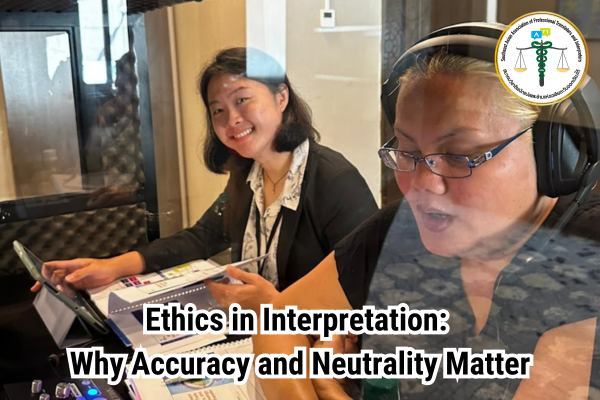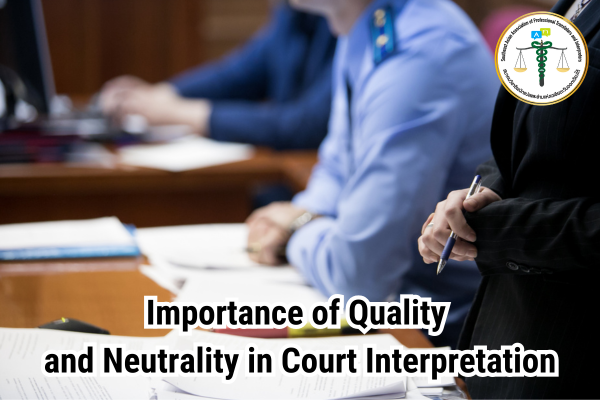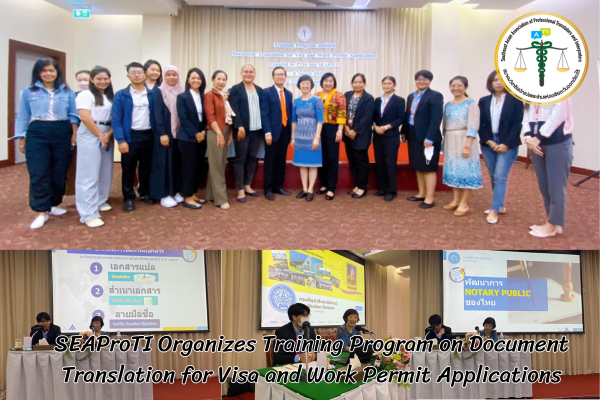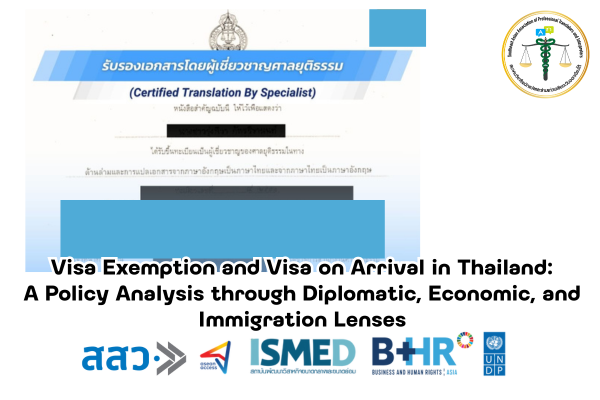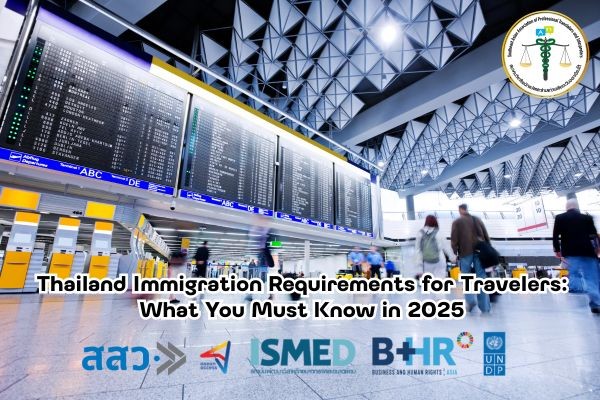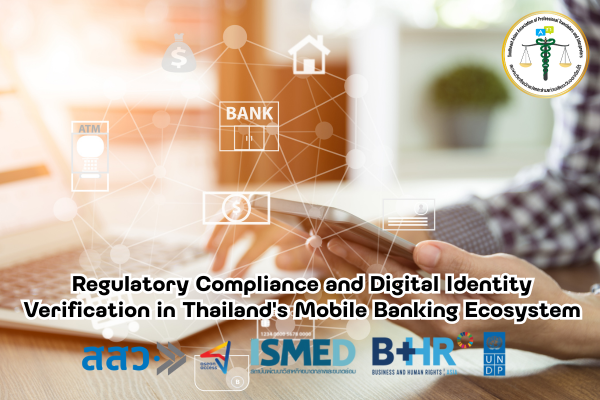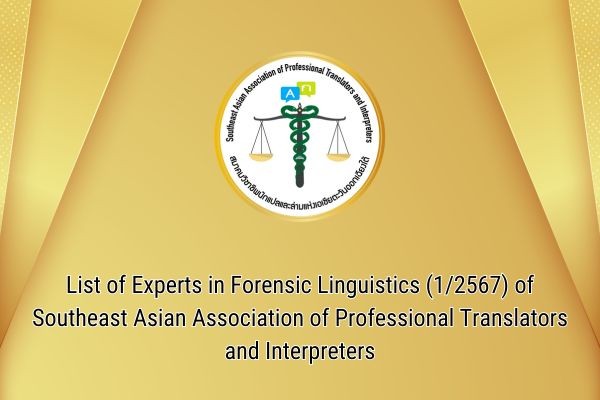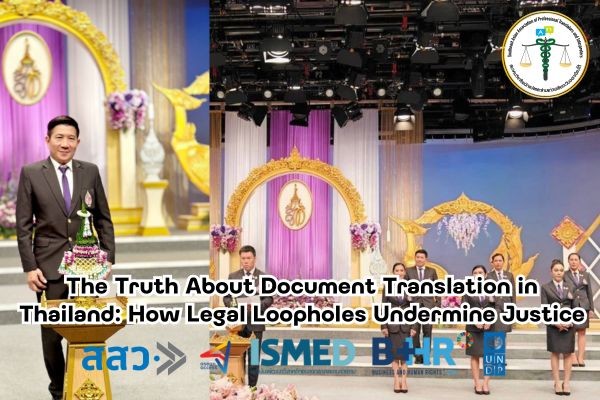Ethics in Interpretation: Why Accuracy and Neutrality Matter
Interpreters play a pivotal role in bridging language and cultural gaps, ensuring effective communication between people of different linguistic backgrounds. Whether in legal proceedings, medical consultations, or high-stakes business meetings, interpreters shoulder the responsibility of conveying meaning accurately and without bias. This ethical balance is critical for maintaining trust, ensuring fairness, and achieving effective communication. Accuracy and neutrality are not merely professional ideals; they are the cornerstones of the interpreting profession.
Accuracy: The Foundation of Interpretation Ethics
Why Accuracy Is Essential
At its core, interpretation is about preserving the integrity of communication. A single misinterpretation can lead to significant misunderstandings, derail negotiations, or even endanger lives. Accuracy ensures that the message’s meaning and intent remain intact, enabling informed decision-making.
Examples of the Importance of Accuracy
-
In Legal Settings: Misinterpreting a witness’s testimony or legal terminology during a trial could alter the outcome of the case, potentially leading to unjust consequences.
-
In Healthcare: Conveying a patient’s symptoms or a doctor’s diagnosis inaccurately can result in incorrect treatments, jeopardizing patient safety.
-
In Business Negotiations: Misunderstandings caused by inaccurate interpretation can derail deals, harm professional relationships, and damage organizational reputations.
Challenges to Maintaining Accuracy
-
Complex Terminology: Legal, medical, and technical fields often involve specialized language that requires interpreters to have in-depth subject knowledge.
-
Cultural Nuances: Certain ideas or expressions may not have direct equivalents in other languages, requiring interpreters to find the most accurate contextual match.
-
Time Pressure: Simultaneous interpreters often have only seconds to process, translate, and deliver spoken words accurately, making focus and preparation critical.
Neutrality: The Interpreter’s Code
What Is Neutrality?
Neutrality means that interpreters must not inject personal opinions, emotions, or biases into their work. Interpreters act as conduits for communication rather than participants in the conversation.
Why Neutrality Matters
-
Maintaining Trust: Clients must trust that interpreters are impartial and committed to fair representation of all parties.
-
Ensuring Fairness: In legal and diplomatic contexts, neutrality prevents undue influence on decisions and ensures balanced communication.
-
Respecting Professional Boundaries: Interpreters must prioritize the needs of the conversation while refraining from inserting their personal views or preferences.
Common Pitfalls to Avoid
-
Interjecting Personal Opinions: Even subtle comments can compromise neutrality and impact the outcome of interactions.
-
Favoring One Party: Giving preferential treatment to one side undermines the credibility of the interpretation and can erode trust.
-
Allowing Emotions to Interfere: Interpreters must remain composed and professional, even in emotionally charged or high-stress situations.
Upholding Ethics in Interpretation
Professional Codes of Conduct
Numerous professional organizations, such as the International Association of Conference Interpreters (AIIC) and the National Association of Judiciary Interpreters and Translators (NAJIT) including the Southeast Asian Association of Professional Translators and Interpreters (SEAProTI), have developed ethical guidelines. These codes emphasize:
-
Confidentiality: Protecting the privacy and sensitive information of clients.
-
Accuracy: Striving to deliver precise and faithful communication.
-
Impartiality: Avoiding conflicts of interest and maintaining an unbiased stance.
Training and Certification
Formal training equips interpreters with the skills to navigate ethical dilemmas. Certification ensures interpreters meet rigorous industry standards, demonstrating their commitment to ethical practices and professional excellence.
Practical Tips for Interpreters
-
Preparation: Before assignments, familiarize yourself with the subject matter, context, and specialized terminology to ensure accuracy.
-
Active Listening: Pay close attention to context, tone, and non-verbal cues to accurately capture the speaker’s intended meaning.
-
Clarify When Needed: If a statement is unclear, ask for repetition or explanation rather than risk an inaccurate interpretation.
-
Stay Composed: Develop techniques for managing stress, maintaining focus, and delivering consistent performance under pressure.
The Consequences of Ethical Lapses
For Clients and Participants
When interpreters fail to uphold ethical standards, the repercussions can be severe:
-
Broken Trust: Clients may lose confidence in the interpreter’s reliability and impartiality.
-
Financial Losses: Miscommunication can lead to failed deals, legal penalties, or reputational damage.
-
Compromised Safety: In healthcare and emergency contexts, inaccuracies can directly endanger lives.
For Interpreters
Ethical violations can result in significant professional consequences:
-
Reputation Damage: Breaches of ethics can tarnish an interpreter’s credibility and limit future opportunities.
-
Loss of Certification: Serious lapses may result in disciplinary action, including suspension or revocation of professional credentials.
-
Legal Ramifications: In extreme cases, interpreters may face legal action for negligence or misconduct.
Conclusion
Ethics form the backbone of the interpreting profession. Accuracy ensures that the intended message is faithfully conveyed, while neutrality maintains fairness and trust. Together, these principles enable interpreters to facilitate effective communication across languages and cultures. Upholding ethical standards not only enhances professional practice but also contributes to a more connected and equitable world. By committing to accuracy and neutrality, interpreters honor their role as bridge-builders and advocates for understanding.
SEAProTI’s certified translators, translation certification providers, and certified interpreters:
The Southeast Asian Association of Professional Translators and Interpreters (SEAProTI) has officially announced the criteria and qualifications for individuals to register as “Certified Translators,” “Translation Certification Providers,” and “Certified Interpreters” under the association’s regulations. These guidelines are detailed in Sections 9 and 10 of the Royal Thai Government Gazette, issued by the Secretariat of the Cabinet under the Office of the Prime Minister of the Kingdom of Thailand, dated July 25, 2024, Volume 141, Part 66 Ng, Page 100.
To read the full publication, visit: the Royal Thai Government Gazette
จรรยาบรรณวิชาชีพในการล่าม: เหตุใดความถูกต้องและความเป็นกลางจึงมีความสำคัญ
ล่ามมีบทบาทสำคัญในการเชื่อมช่องว่างทางภาษาและวัฒนธรรม เพื่อให้ผู้คนจากภูมิหลังทางภาษาที่แตกต่างสามารถสื่อสารกันได้อย่างมีประสิทธิภาพ ไม่ว่าจะเป็นในกระบวนการทางกฎหมาย การให้คำปรึกษาทางการแพทย์ หรือการประชุมธุรกิจ ล่ามต้องรับผิดชอบหน้าที่ที่ละเอียดอ่อนในการถ่ายทอดความหมายอย่างถูกต้องและไม่มีอคติ ความสมดุลทางจริยธรรมนี้เป็นสิ่งสำคัญอย่างยิ่งต่อการสร้างความไว้วางใจ การรับประกันความยุติธรรม และการสื่อสารที่มีประสิทธิผล ความถูกต้องและความเป็นกลางไม่เพียงแต่เป็นอุดมคติในวิชาชีพ แต่ยังเป็นรากฐานของวิชาชีพล่ามอีกด้วย
ความถูกต้อง: รากฐานของจริยธรรมในการล่าม
เหตุใดความถูกต้องจึงเป็นสิ่งสำคัญ
หัวใจของการล่ามคือการรักษาความสมบูรณ์ของการสื่อสาร การแปลหรือการตีความที่ผิดพลาดเพียงครั้งเดียวอาจนำไปสู่ความเข้าใจผิด การต่อรองที่ล้มเหลว หรือแม้กระทั่งสถานการณ์ที่เป็นอันตรายถึงชีวิต ความถูกต้องช่วยให้มั่นใจได้ว่าความหมายและเจตนาของข้อความถูกส่งต่อโดยไม่บิดเบือนหรือละเลย
ตัวอย่างความสำคัญของความถูกต้อง
-
ในกระบวนการทางกฎหมาย:
การตีความผิดในคำให้การของพยานหรือคำศัพท์ทางกฎหมายอาจส่งผลต่อผลลัพธ์ของคดี ซึ่งอาจนำไปสู่ความอยุติธรรมได้ -
ในด้านการแพทย์:
การสื่อสารอาการของผู้ป่วยหรือการวินิจฉัยของแพทย์อย่างไม่ถูกต้อง อาจทำให้เกิดการรักษาที่ผิดพลาดและส่งผลต่อความปลอดภัยของผู้ป่วย -
ในการเจรจาธุรกิจ:
ความเข้าใจผิดที่เกิดจากการล่ามผิดพลาดอาจทำให้การเจรจาล้มเหลว ความสัมพันธ์ทางธุรกิจเสียหาย หรือชื่อเสียงขององค์กรได้รับความเสียหาย
ความท้าทายในการรักษาความถูกต้อง
-
คำศัพท์เฉพาะทาง:
การล่ามในสาขากฎหมาย การแพทย์ หรือเทคนิคเฉพาะทาง มักใช้ภาษาที่ต้องการความรู้ลึกซึ้งเฉพาะด้าน -
ความแตกต่างทางวัฒนธรรม:
บางแนวคิดหรือสำนวนอาจไม่มีคำเทียบเคียงโดยตรงในภาษาอื่น ซึ่งต้องอาศัยการตีความที่เหมาะสมที่สุดในบริบท -
แรงกดดันด้านเวลา:
ล่ามพูดพร้อม (simultaneous interpreting) มีเวลาเพียงไม่กี่วินาทีในการประมวลผล แปล และถ่ายทอดคำพูดได้อย่างถูกต้อง
ความเป็นกลาง: หลักการสำคัญของนักล่าม
ความเป็นกลางคืออะไร?
ความเป็นกลางหมายถึงการที่นักล่ามต้องไม่แสดงความเห็นส่วนตัว อารมณ์ หรืออคติใด ๆ ในกระบวนการล่าม โดยทำหน้าที่เป็นเพียงตัวกลางของการสื่อสารเท่านั้น ไม่ใช่ผู้เข้าร่วมในบทสนทนา
เหตุใดความเป็นกลางจึงสำคัญ
-
สร้างความไว้วางใจ:
ผู้ใช้บริการต้องเชื่อมั่นว่านักล่ามจะให้ความยุติธรรมและไม่ลำเอียง -
รับประกันความยุติธรรม:
ในบริบทของกฎหมายและการทูต ความเป็นกลางช่วยป้องกันการมีอิทธิพลต่อการตัดสินใจหรือผลลัพธ์ที่ไม่สมดุล -
เคารพขอบเขตวิชาชีพ:
นักล่ามต้องให้ความสำคัญกับความต้องการของบทสนทนา โดยไม่แทรกความคิดเห็นหรือความชอบส่วนตัว
ข้อผิดพลาดทั่วไปที่ควรหลีกเลี่ยง
-
แทรกความคิดเห็นส่วนตัว:
แม้แต่ความคิดเห็นเล็กน้อยก็อาจทำลายความเป็นกลางและส่งผลต่อผลลัพธ์ได้ -
เข้าข้างฝ่ายใดฝ่ายหนึ่ง:
การให้ความช่วยเหลือหรือการปฏิบัติที่แตกต่างกันกับฝ่ายใดฝ่ายหนึ่งจะทำลายความน่าเชื่อถือของการล่าม -
ปล่อยให้อารมณ์มีอิทธิพล:
นักล่ามต้องมีสมาธิและความเป็นมืออาชีพ แม้ในสถานการณ์ที่มีอารมณ์รุนแรง
การรักษาจริยธรรมในการล่าม
แนวปฏิบัติด้านจริยธรรมในวิชาชีพ
องค์กรวิชาชีพหลายแห่ง เช่น AIIC (สมาคมนักล่ามการประชุมนานาชาติ) และ NAJIT (สมาคมนักล่ามและนักแปลด้านตุลาการแห่งชาติ) รวมถึง สมาคมวิชาชีพนักแปลและล่ามแห่งเอเชียตะวันออกเฉียงใต้ (SEAProTI) ได้กำหนดแนวปฏิบัติด้านจริยธรรมที่ชัดเจนไว้ ซึ่งรวมถึง:
-
การรักษาความลับ:
ปกป้องข้อมูลส่วนตัวและข้อมูลที่ละเอียดอ่อนของลูกค้า -
ความถูกต้อง:
พยายามอย่างเต็มที่ในการสื่อสารข้อความที่ถูกต้องและครบถ้วน -
ความเป็นกลาง:
หลีกเลี่ยงความขัดแย้งทางผลประโยชน์และรักษาความยุติธรรม
การฝึกอบรมและการรับรอง
การฝึกอบรมอย่างเป็นทางการช่วยให้นักล่ามสามารถจัดการกับสถานการณ์ที่มีความซับซ้อนทางจริยธรรมได้อย่างเหมาะสม ขณะที่การรับรองวิชาชีพช่วยยืนยันว่านักล่ามมีมาตรฐานสูงและเข้าใจถึงความรับผิดชอบในวิชาชีพของตน
เคล็ดลับสำหรับนักล่าม
-
การเตรียมตัว:
ศึกษาข้อมูลเกี่ยวกับหัวข้อ คำศัพท์ และบริบทก่อนเริ่มงาน -
การฟังอย่างตั้งใจ:
ใส่ใจกับบริบท น้ำเสียง และท่าทางเพื่อถ่ายทอดความหมายได้อย่างสมบูรณ์ -
การขอความชัดเจน:
หากข้อความไม่ชัดเจน อย่าลังเลที่จะขอให้พูดซ้ำหรืออธิบายเพิ่มเติม -
รักษาสมาธิ:
ฝึกเทคนิคการจัดการความเครียดและรักษาสมาธิเพื่อการล่ามที่มีคุณภาพ
ผลกระทบจากการละเลยจริยธรรม
สำหรับลูกค้าและผู้เข้าร่วม
-
ความไว้วางใจที่สูญเสีย:
ลูกค้าอาจไม่มั่นใจในความน่าเชื่อถือของนักล่ามอีกต่อไป -
ความเสียหายทางการเงิน:
การสื่อสารผิดพลาดอาจนำไปสู่ความล้มเหลวในการเจรจา โทษทางกฎหมาย หรือความเสียหายต่อชื่อเสียง -
ความปลอดภัยที่ถูกทำลาย:
ในบริบทการแพทย์หรือเหตุฉุกเฉิน ความผิดพลาดอาจส่งผลต่อชีวิตได้
สำหรับนักล่าม
-
ชื่อเสียงที่เสียหาย:
การละเมิดจริยธรรมอาจทำให้ความน่าเชื่อถือในวิชาชีพลดลง และโอกาสในงานลดลง -
การสูญเสียใบรับรอง:
การกระทำผิดร้ายแรงอาจนำไปสู่การลงโทษ เช่น การพักใช้หรือเพิกถอนใบรับรอง -
ผลทางกฎหมาย:
ในกรณีร้ายแรง นักล่ามอาจถูกดำเนินคดีทางกฎหมายในข้อหาประมาทเลินเล่อหรือประพฤติมิชอบ
สรุป
จริยธรรมเป็นรากฐานสำคัญของวิชาชีพล่าม ความถูกต้องช่วยให้มั่นใจได้ว่าข้อความถูกถ่ายทอดอย่างครบถ้วนและแม่นยำ ขณะที่ความเป็นกลางช่วยรักษาความยุติธรรมและความไว้วางใจ หลักการทั้งสองนี้ช่วยให้นักล่ามสามารถสร้างการสื่อสารที่มีประสิทธิภาพระหว่างภาษาและวัฒนธรรมต่าง ๆ การปฏิบัติตามจริยธรรมไม่เพียงแต่ช่วยเพิ่มคุณภาพงานของนักล่าม แต่ยังช่วยส่งเสริมความเข้าใจและความเชื่อมโยงในโลกที่หลากหลายอีกด้วย
เกี่ยวกับนักแปลรับรอง ผู้รับรองการแปล และล่ามรับรองของสมาคมวิชาชีพนักแปลและล่ามแห่งเอเชียตะวันออกเฉียงใต้
สมาคมวิชาชีพนักแปลและล่ามแห่งเอเชียตะวันออกเฉียงใต้ (SEAProTI) ได้ประกาศหลักเกณฑ์และคุณสมบัติผู้ที่ขึ้นทะเบียนเป็น “นักแปลรับรอง (Certified Translators) และผู้รับรองการแปล (Translation Certification Providers) และล่ามรับรอง (Certified Interpreters)” ของสมาคม หมวดที่ 9 และหมวดที่ 10 ในราชกิจจานุเบกษา ของสำนักเลขาธิการคณะรัฐมนตรี ในสำนักนายกรัฐมนตรี แห่งราชอาณาจักรไทย ลงวันที่ 25 ก.ค. 2567 เล่มที่ 141 ตอนที่ 66 ง หน้า 100 อ่านฉบับเต็มได้ที่: นักแปลรับรอง ผู้รับรองการแปล และล่ามรับรอง


